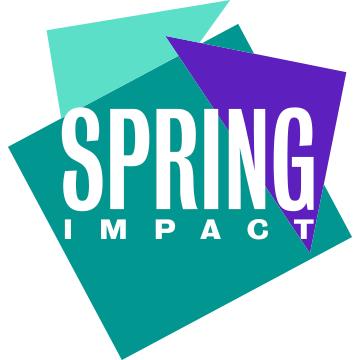Mission
Recovery Café is a refuge for healing and hope, helping individuals to build community and transform lives. The Recovery Café model provides a beautiful, safe, drug and alcohol-free community space to anchor individuals in their recovery.
Challenge
In 2016, Recovery Café began training others to start their own Café locations, amidst a national growing need for programs that help people maintain recovery, reduce relapse, and fulfill their potential. The team selected and began training the first cohort of five Recovery Café Network (RCN) partners, however, they knew that in order to meet the need across the US and beyond, they would have to address key questions, such as:
- What is the role of Recovery Café as the central body for the network?
- What is the process to become a member of the network?
- How do we ensure adequate support for and consistent quality of services across Cafés?
Change
Recovery Café joined up with Spring Impact to guide their leadership team through critical strategic and operational decisions. Together, we co-developed a social licensing model for the Recovery Café Network (RCN), which would provide a clear pathway for dramatically increasing the number of Cafés across communities in need in the US.
In their social licensing model, partners undergo two years of RCN Emerging Membership with intensive initial support from the RCN, followed by an assessment to become a Full Member of RCN, receiving lighter ongoing support.
Starting with their vision for the RCN at scale, we distilled the core elements driving Recovery Café’s impact, and refined their criteria and processes to help identify the right partners capable of implementing these elements in their community. We also helped outline the tools and processes needed to go from operating in one location to managing a network of several dozen sites, such as those needed for capturing evidence of impact at a network level. After clarifying these details, we coached the RCN team as they revised their operational manuals and transitioned existing partners into the new social licensing model.
Together we laid the groundwork for scaling up the RCN in a systematic, strategic way. Recovery Café’s Director of Replication, David Uhl, told us:
“Spring Impact helped create the framework we use (for scaling). Without their help, it would have taken us years to figure things out.”
Action and Impact
The RCN quickly rolled out its social licensing model, onboarding a new cohort of Emerging Members in 2017. Since then, the RCN team has grown and they have exceeded their initial impact goal of nurturing 16 Recovery Cafés by 2022:
The RCN has now supported the capacity of over 27 members that have opened Cafés across the US and Canada. The network estimates they have served between 1,500 and 2,500 individuals in need of sustained recovery support.
Recovery Café continues to scale, and the team is actively exploring quicker pathways to spread their impact, building on the learnings they’ve gathered. They have already opened a second branch in Seattle, and are continually improving the training, coaching, capacity grants, and technological resources offered to RCN members.
Now, more than ever, the Recovery Café model is needed and the engaged RCN community continues to grow and mobilize in new ways in response.
“We are so grateful for this partnership. We trust that many more lives will find healing community as a result of the commitment we all bring.” – Killian Noe, Founder
Photo: Recovery Café Members take a break from their game to cheer recovery! – Peter Yates

